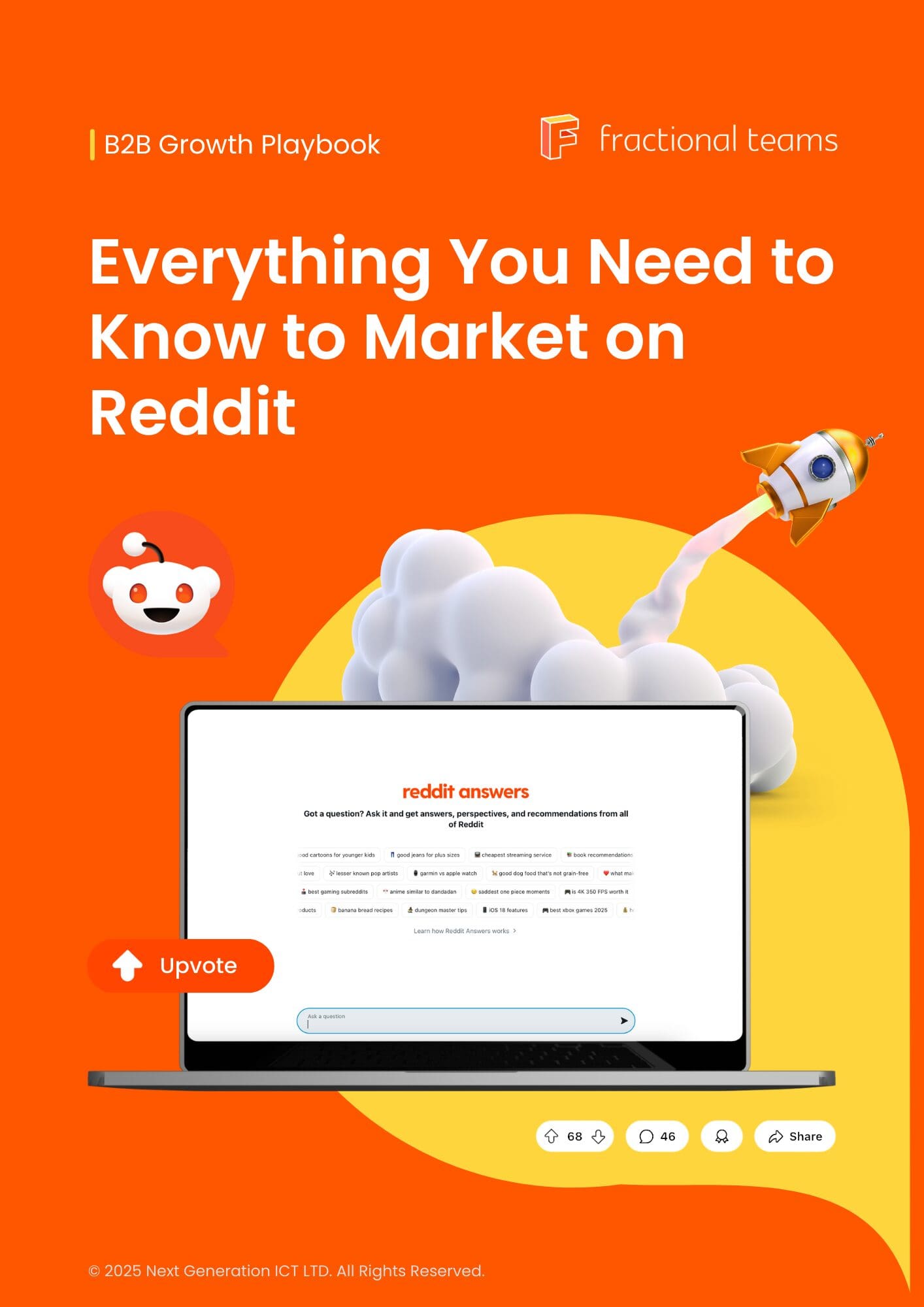🚀 Just Launched: The Ultimate Reddit Marketing Playbook (+ 🎁 Bonus Content)
You can build something exceptional and still struggle to get noticed. Many tech founders find marketing uncomfortable. It feels vague, creative, and far from the clear logic of coding or building.
If you haven’t come across this article by Paul Graham, it’s worth a read. Many tech startups believe they either take off fast or fail early. In reality, most need a push. As Paul Graham puts it, you often have to do things that don’t scale to get momentum started.
Marketing is a process of solving problems. The same mindset that helps you fix bugs or improve systems can help you understand your audience and test what works. You just need to approach it with curiosity and keep learning from what you find.
Here’s how to approach marketing with the same curiosity and logic you use to build products.

You can never perfect a product before going to market. The only way to know what works is to launch, get feedback, and keep improving.
As Reid Hoffman said, “If you are not embarrassed by the first version of your product, you’ve launched too late.”
The market is the only true judge. No expert, investor, or consultant can tell you if your product will succeed or fail. That answer always comes from the market itself.
We talked more about this idea in our previous blog — how selling first and building second can help you validate faster and waste less time guessing.
Your SaaS or product stays invisible while you’re constantly talking to the people who feel the pain you solve.
Start by interviewing 10 users. Learn their exact pain points, frustrations, and triggers.
Turn every call into micro-content:
Doing this weekly creates a year’s worth of authentic content.

Think of SEO as a long-term engine. You don’t need to be a full-time content team to start seeing results.
We’ve also written about when it makes sense to take a bolder approach in B2B and how to find the balance between being memorable and staying trustworthy.
Most tech founders see ads as risky, but they’re just experiments with numbers.
We’ve covered the measurement side of marketing, exploring how to move beyond vanity metrics and focus on data that connects directly to business outcomes.
Visibility doesn’t come from shouting about your product, it comes from sharing what you’re learning.
If you want to go deeper into using Reddit as a growth channel, check out our Reddit Marketing Playbook. It’s a complete guide for founders and marketers who want to generate awareness and leads organically, without spending on ads. The playbook includes step-by-step tactics, real examples, and community engagement strategies we’ve tested with real startups.
The Reddit Playbook is based on real-world experience with B2B brands. It’s a practical guide for founders, marketers, and sales teams, covering both the basics and advanced strategies for engaging authentically, spotting opportunities, and growing your presence without relying on big ad budgets.

Don’t let friction kill conversions.
Marketing isn’t about shouting louder, it’s about systematically fixing why the right people aren’t seeing you.
The mindset shift is everything. In the early stages, marketing won’t run on autopilot. You need to give it a push. Just like product development, traction starts with deliberate effort. Talk to users, test, and adjust until something clicks. Over time, that motion builds into momentum.
If you’re ready to turn that mindset into action, Fractional Teams helps tech founders and startups shape a clear strategy and execute marketing that drives meaningful growth. Because great products deserve to be seen.
Hi! I'm Dariia Panchenko, Analytics and Community Manager at Fractional Teams. I write about the best B2B marketing strategies and practices.
Learn how content clusters help B2B companies attract the right audience and create structured, user-friendly content.
Should B2B marketing push boundaries? We explore the role of edgy, attention-grabbing campaigns in the B2B marketing space.
We have designed and developed a bespoke member and customer portal for a leading telecoms industry specialist.
Digital content
Events and community
Products and propositions
Lead and demand generation
Technical platforms and services
Fractional CxO
Tech (SaaS) vendors
Industry specialists
Service providers
Customer success stories
Resources Hub
About us
Blog
FREE Mini SEO Audit